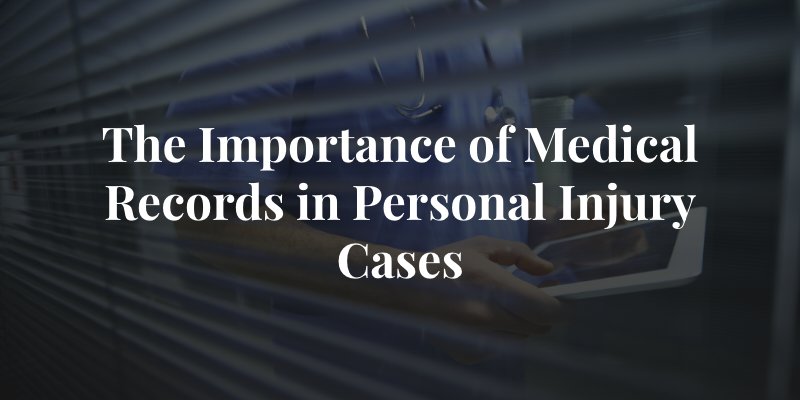If you get injured in an accident in California and someone else is to blame, you may have grounds to file a personal injury case in pursuit of justice and financial compensation from the at-fault party. After you file, you will become the plaintiff and have the burden of proving your claim. Your medical records can provide a crucial type of evidence during your case.

Proving You Were Injured in the Accident
Your medical records can provide a critical baseline of evidence for many aspects of your claims. The first is using them to prove that you were injured in the accident in question and not a previous or unrelated incident. You can use your medical records to counter any claims made by an insurance company that your injuries were pre-existing.
A doctor can provide notes and records to help establish a direct connection between your current injuries and the accident. Your healthcare provider will document the circumstances of your injury, including the date and time of your accident, the mechanism of injury, and any pre-existing conditions that may affect your recovery. This can help you and your Orange County personal injury lawyer prove causation and enhance your credibility as a plaintiff.
Showing the Extent or Severity of Your Injury
Your medical records will also provide important details about your injuries, such as their nature, extent and severity. Your records can include medical test results and imaging scans, such as x-rays, as well as your treatment regime and any necessary surgical procedures. These documents can provide objective medical evidence to show the gravity of your injuries and how they will impact your daily life.
Demonstrating Your Pain and Suffering
Pain and suffering damages, also known as noneconomic or general damages, are a type of financial compensation that can be awarded in a personal injury claim if the victim can provide evidence that the injury has led to physical pain, suffering, emotional distress, mental anguish or other intangible losses.
Pain and suffering can be difficult to prove, as these losses do not have hard evidence. Medical records can help establish pain and suffering by tracking your complaints of pain, discomfort or emotional trauma given to your health care provider. If you visited a mental health professional for psychological trauma, these documents can also prove pain and suffering.
Establishing Grounds for a Claim for Future Damages
A serious injury from an accident could leave you with many long-term losses. A permanent disability, for example, could result in years of lost wages, lost earning potential, medical treatments, live-in care, home and vehicle modifications, and a variety of other expenses. A disability can also cause long-lasting noneconomic damages, including limited mobility, cognitive challenges and lost quality of life.
An insurance company, judge or jury may look at your medical records to determine how long your injury or medical condition is anticipated to last. Your doctor or medical team will include a prognosis for your recovery, point of maximum medical improvement and outlook for the future in your records to help establish that your injuries will last for as long as you are claiming.
Your medical records can serve as a vital piece of evidence to support many different aspects of your personal injury case. For assistance collecting the right medical records to support your claim, contact an experienced personal injury attorney at Bridgford, Gleason & Artinian.
